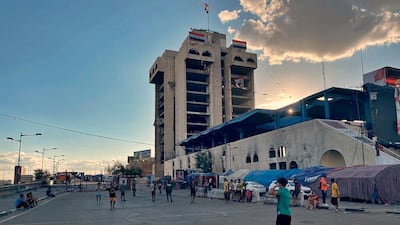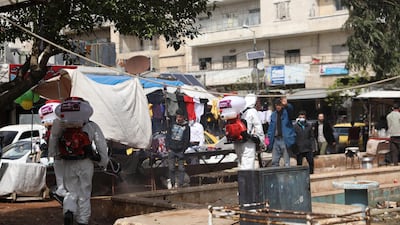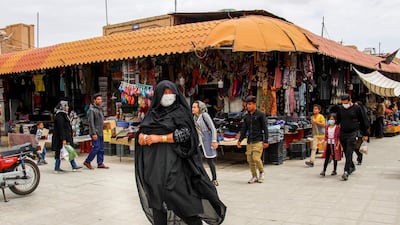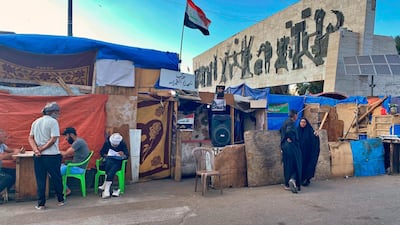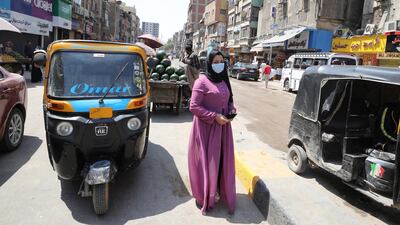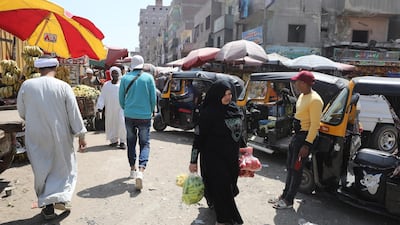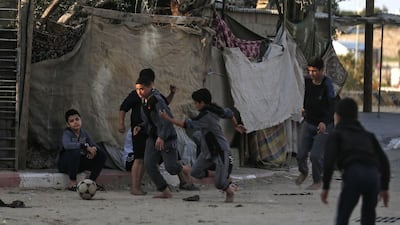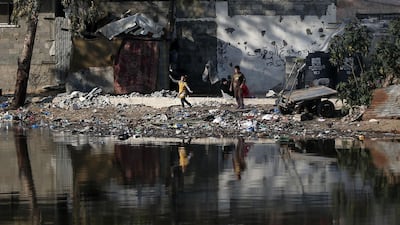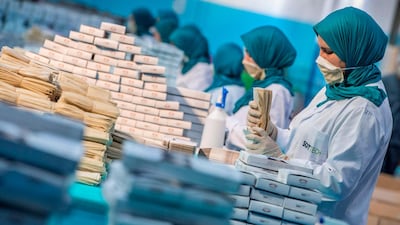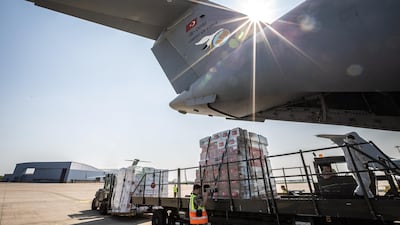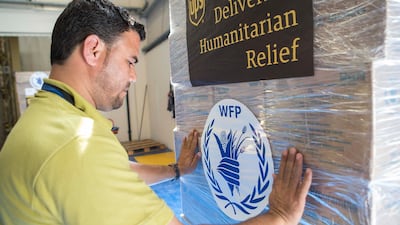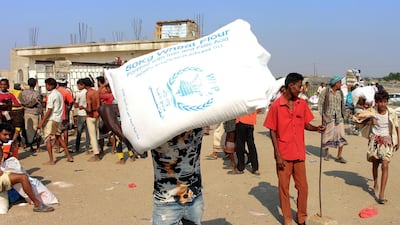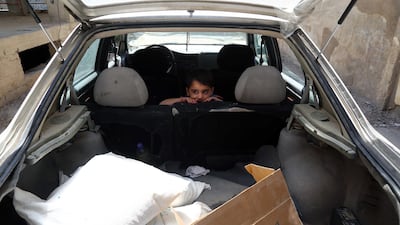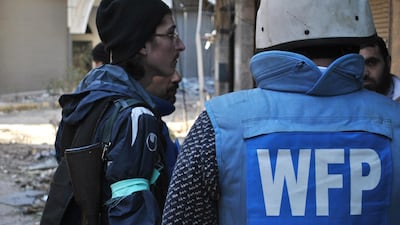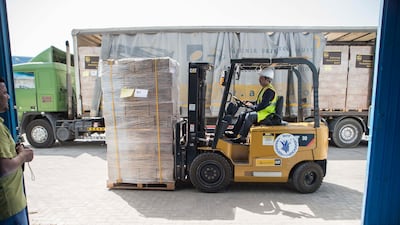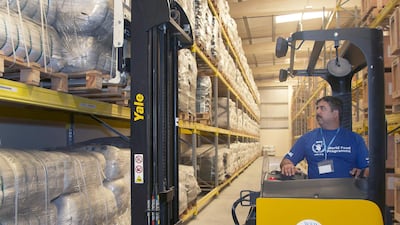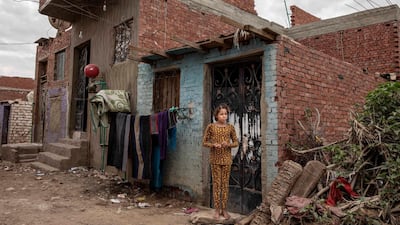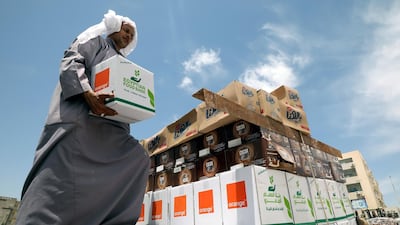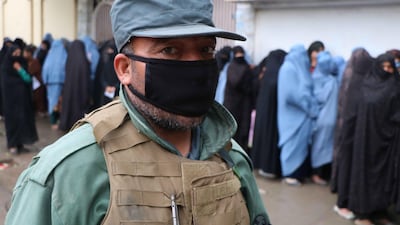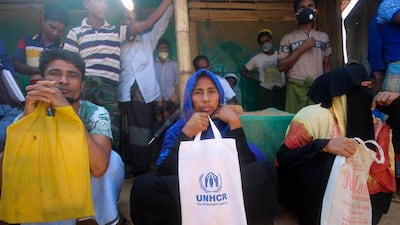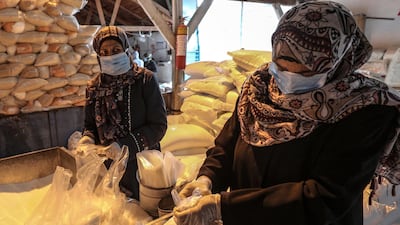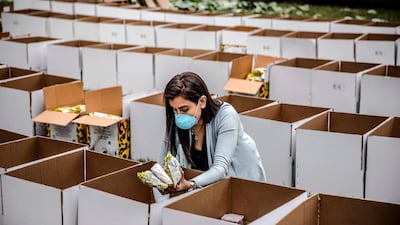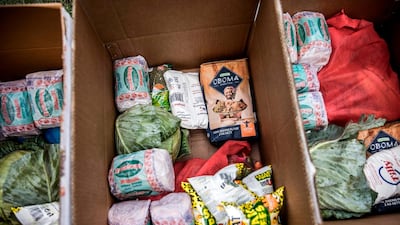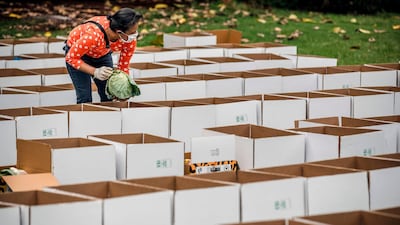The notion of our vast world as a "global village" has perhaps never before had such resonance. What began as a localised outbreak of a novel virus, has in mere weeks become a pandemic of unprecedented proportions.
Covid-19 is the very definition of a crisis in a globalised world; its spread rapid and wide-reaching, its impacts profound and interconnected.
Countries are containing the virus by testing, treating and tracing, by limiting travel and imposing quarantine measures. But it continues onwards like a wave – one that may crash on those least able to withstand it.
As I write, 210 countries have reported cases, over 128,000 people have lost their lives, infections have tipped 2 million, societies are in turmoil and economies at a standstill.
Such an extraordinary challenge requires an extraordinary response; decisive, bold, and – above all – collective and grounded in solidarity with the whole of humanity as we weather this storm together.
Covid-19 is the defining public health crisis of our time, but it is fast becoming much more. By challenging every country and community it impacts, it has the potential to create devastating social, economic and political consequences that may leave deep scars.
In a previous column, I explained why when food security is threatened, so too are stability and prosperity. As the full effect of Covid-19 across the world unfolds, we are truly in uncharted territory.
We have already witnessed how it is blind to national borders, race, ethnicity or economic strength.
We have seen how the world’s most developed nations, with unrivalled capacities to endure the challenge and safeguard domestic populations, have struggled to confront it.
Although the impact of the pandemic has only just begun to reveal itself in the world’s so-called “developing” nations, there is good reason to believe that they will be disproportionately affected.
Already dealing with economic shocks, conflict and the effects of climate change, these countries will have to face devastating consequences. Consequences that will impact all aspects of life – starting with food insecurity, as the most basic of needs.
Entering 2020, the number of hungry people around the world was already on the rise.
Today, over 800 million people face chronic undernourishment and 100 million are in need of life-saving food assistance.
The world has long produced more than enough food to feed its over 7 billion inhabitants
Covid-19 risks undermining efforts to reverse this trend.
Why?
To begin, communities in the “developing” world tend to live in closer proximity to one another, complicating social distancing and massively increasing the risk of spread.
A higher proportion of people suffer from pre-existing health problems that render them more vulnerable to the disease.
As everywhere, stay-at-home measures and other necessary restrictions will mean lost production, lost employment and lost income.
Governments in these countries cannot replicate the stimulus responses of their "developed" counterparts. They face fewer and harder choices when confronted with the pandemic and its multitude of impacts. Health systems are weaker and ill prepared for a crisis of this kind.
Economies depend largely on imports of staple foods to ensure the food security of their populations. Already, Covid-19 related containment measures have started to make it more challenging to move food from the world’s breadbaskets to where it is consumed.
If additional restrictions are imposed on exports and major supply routes close or slow down, food may not reach where it is needed and prices may rise.
We saw during the 2007-2008 global financial crisis how inflation can hit developing countries and their populations hardest; particularly as poor families spend a higher proportion of their income on food.
Global food markets are still well supplied and prices remain stable as I write this. We know that the world has long produced more than enough food to feed its almost eight billion inhabitants. What happens next depends in large measure on how the world responds.
Many before me have observed that Covid-19 may be the greatest test to humanity since World War Two, but it is a test of a very different nature.
While nations of the world have long focused on protecting themselves against known enemies, we may have neglected to prepare for an invisible adversary to all of humankind.
If nothing else, this pandemic should remind us that we are all equal as citizens of the world and this is why any effort to confront its human and economic costs must be truly global in design and application.
It may be hard to think of the world at this time when so many of us are feeling the immediate, painful impact of the pandemic. But think of the world we must. For, as long as Covid-19 rages somewhere it is a threat everywhere.
As long as people suffer its direct and indirect consequences in the world's most vulnerable corners, those consequences will affect all of us. The crisis knows no borders, neither should the response.
Here, at the United Nations World Food Programme (WFP) we are working tirelessly to do our part. We are closely monitoring trends in food security, health access and markets around the world and are sharing that information widely to support global decision-making.
As the logistics backbone of the humanitarian community, we are rolling out essential support services so that humanitarian and health workers on the frontlines of the Covid-19 pandemic are able to stay and deliver.
We are establishing humanitarian hubs to facilitate the dispatch of essential cargo, setting up air transport links, contracting charter vessels and providing passenger air and Medevac services for humanitarian and health staff.
Right here in the UAE – where WFP is generously hosted at Dubai's International Humanitarian City and runs the biggest of its six United Nations humanitarian response depots where it procures, stores and rapidly transports emergency supplies on behalf of the humanitarian community – we are readying our support. But we urgently need $350 million to do this.
We are working to sustain – and scale-up if necessary – our vital food assistance programmes which already offer a lifeline to close to 100 million vulnerable people every year.
To do so, we are adapting our delivery mechanisms in the face of border closures, travel restrictions and supply chain complexities never seen before. It is a sobering reality that if the critical work of WFP cannot be carried out – if our supply chain breaks down or we do not receive the $1.9 billion we require to sustain operations for three months – some 150,000 people could lose their lives every day.
Ten short years away from 2030, the world has suffered a major setback in its quest to achieve the Sustainable Development Goals. Goals that were designed to embody a universally shared vision of a safe, just and sustainable world in which the whole of humanity thrives. At this critical moment in history, let us stand together again in this same spirit.
Many have remarked that life may never be the same after Covid-19 but I believe that by working together in solidarity we can build our "global village" back better.
Mageed Yahia is the Director of the United Nations World Food Programme Office in UAE and regional representative of the WFP in GCC
Who was Alfred Nobel?
The Nobel Prize was created by wealthy Swedish chemist and entrepreneur Alfred Nobel.
- In his will he dictated that the bulk of his estate should be used to fund "prizes to those who, during the preceding year, have conferred the greatest benefit to humankind".
- Nobel is best known as the inventor of dynamite, but also wrote poetry and drama and could speak Russian, French, English and German by the age of 17. The five original prize categories reflect the interests closest to his heart.
- Nobel died in 1896 but it took until 1901, following a legal battle over his will, before the first prizes were awarded.
RESULT
Al Hilal 4 Persepolis 0
Khribin (31', 54', 89'), Al Shahrani 40'
Red card: Otayf (Al Hilal, 49')
Afghanistan Premier League - at a glance
Venue: Sharjah Cricket Stadium
Fixtures:
Tue, Oct 16, 8pm: Kandahar Knights v Kabul Zwanan; Wed, Oct 17, 4pm: Balkh Legends v Nangarhar Leopards; 8pm: Kandahar Knights v Paktia Panthers; Thu, Oct 18, 4pm: Balkh Legends v Kandahar Knights; 8pm: Kabul Zwanan v Paktia Panthers; Fri, Oct 19, 8pm: First semi-final; Sat, Oct 20, 8pm: Second semi-final; Sun, Oct 21, 8pm: final
Table:
1. Balkh Legends 6 5 1 10
2. Paktia Panthers 6 4 2 8
3. Kabul Zwanan 6 3 3 6
4. Nagarhar Leopards 7 2 5 4
5. Kandahar Knights 5 1 4 2
How it works
Booklava works on a subscription model. On signing up you receive a free book as part of a 30-day-trial period, after which you pay US$9.99 (Dh36.70) per month to gain access to a library of books and discounts of up to 30 per cent on selected titles. You can cancel your subscription at any time. For more details go to www.booklava.com
Du Football Champions
The fourth season of du Football Champions was launched at Gitex on Wednesday alongside the Middle East’s first sports-tech scouting platform.“du Talents”, which enables aspiring footballers to upload their profiles and highlights reels and communicate directly with coaches, is designed to extend the reach of the programme, which has already attracted more than 21,500 players in its first three years.
The specs
Engine: 2.0-litre 4cyl turbo
Power: 261hp at 5,500rpm
Torque: 405Nm at 1,750-3,500rpm
Transmission: 9-speed auto
Fuel consumption: 6.9L/100km
On sale: Now
Price: From Dh117,059
In numbers: PKK’s money network in Europe
Germany: PKK collectors typically bring in $18 million in cash a year – amount has trebled since 2010
Revolutionary tax: Investigators say about $2 million a year raised from ‘tax collection’ around Marseille
Extortion: Gunman convicted in 2023 of demanding $10,000 from Kurdish businessman in Stockholm
Drug trade: PKK income claimed by Turkish anti-drugs force in 2024 to be as high as $500 million a year
Denmark: PKK one of two terrorist groups along with Iranian separatists ASMLA to raise “two-digit million amounts”
Contributions: Hundreds of euros expected from typical Kurdish families and thousands from business owners
TV channel: Kurdish Roj TV accounts frozen and went bankrupt after Denmark fined it more than $1 million over PKK links in 2013
SPEC%20SHEET%3A%20APPLE%20M3%20MACBOOK%20AIR%20(13%22)
%3Cp%3E%3Cstrong%3EProcessor%3A%3C%2Fstrong%3E%20Apple%20M3%2C%208-core%20CPU%2C%20up%20to%2010-core%20CPU%2C%2016-core%20Neural%20Engine%3C%2Fp%3E%0A%3Cp%3E%3Cstrong%3EDisplay%3A%3C%2Fstrong%3E%2013.6-inch%20Liquid%20Retina%2C%202560%20x%201664%2C%20224ppi%2C%20500%20nits%2C%20True%20Tone%2C%20wide%20colour%3C%2Fp%3E%0A%3Cp%3E%3Cstrong%3EMemory%3A%3C%2Fstrong%3E%208%2F16%2F24GB%3C%2Fp%3E%0A%3Cp%3E%3Cstrong%3EStorage%3A%3C%2Fstrong%3E%20256%2F512GB%20%2F%201%2F2TB%3C%2Fp%3E%0A%3Cp%3E%3Cstrong%3EI%2FO%3A%3C%2Fstrong%3E%20Thunderbolt%203%2FUSB-4%20(2)%2C%203.5mm%20audio%2C%20Touch%20ID%3C%2Fp%3E%0A%3Cp%3E%3Cstrong%3EConnectivity%3A%3C%2Fstrong%3E%20Wi-Fi%206E%2C%20Bluetooth%205.3%3C%2Fp%3E%0A%3Cp%3E%3Cstrong%3EBattery%3A%3C%2Fstrong%3E%2052.6Wh%20lithium-polymer%2C%20up%20to%2018%20hours%2C%20MagSafe%20charging%3C%2Fp%3E%0A%3Cp%3E%3Cstrong%3ECamera%3A%3C%2Fstrong%3E%201080p%20FaceTime%20HD%3C%2Fp%3E%0A%3Cp%3E%3Cstrong%3EVideo%3A%3C%2Fstrong%3E%20Support%20for%20Apple%20ProRes%2C%20HDR%20with%20Dolby%20Vision%2C%20HDR10%3C%2Fp%3E%0A%3Cp%3E%3Cstrong%3EAudio%3A%3C%2Fstrong%3E%204-speaker%20system%2C%20wide%20stereo%2C%20support%20for%20Dolby%20Atmos%2C%20Spatial%20Audio%20and%20dynamic%20head%20tracking%20(with%20AirPods)%3C%2Fp%3E%0A%3Cp%3E%3Cstrong%3EColours%3A%3C%2Fstrong%3E%20Midnight%2C%20silver%2C%20space%20grey%2C%20starlight%3C%2Fp%3E%0A%3Cp%3E%3Cstrong%3EIn%20the%20box%3A%3C%2Fstrong%3E%20MacBook%20Air%2C%2030W%2F35W%20dual-port%2F70w%20power%20adapter%2C%20USB-C-to-MagSafe%20cable%2C%202%20Apple%20stickers%3C%2Fp%3E%0A%3Cp%3E%3Cstrong%3EPrice%3A%3C%2Fstrong%3E%20From%20Dh4%2C599%3C%2Fp%3E%0A
ESSENTIALS
The flights
Fly Etihad or Emirates from the UAE to Moscow from 2,763 return per person return including taxes.
Where to stay
Trips on the Golden Eagle Trans-Siberian cost from US$16,995 (Dh62,414) per person, based on two sharing.
Asia Cup Qualifier
Final
UAE v Hong Kong
TV:
Live on OSN Cricket HD. Coverage starts at 5.30am
Results
Men's finals
45kg:Duc Le Hoang (VIE) beat Zolfi Amirhossein (IRI) points 29-28. 48kg: Naruephon Chittra (THA) beat Joseph Vanlalhruaia (IND) TKO round 2.
51kg: Sakchai Chamchit (THA) beat Salam Al Suwaid (IRQ) TKO round 1. 54kg: Veerasak Senanue (THA) beat Huynh Hoang Phi (VIE) 30-25.
57kg: Almaz Sarsembekov (KAZ) beat Tak Chuen Suen (MAC) RSC round 3. 60kg: Yerkanat Ospan (KAZ) beat Ibrahim Bilal (UAE) 30-27.
63.5kg: Abil Galiyev (KAZ) beat Nouredine Samir (UAE) 29-28. 67kg: Narin Wonglakhon (THA) beat Mohammed Mardi (UAE) 29-28.
71kg: Amine El Moatassime (UAE) w/o Shaker Al Tekreeti (IRQ). 75kg: Youssef Abboud (LBN) w/o Ayoob Saki (IRI).
81kg: Ilyass Habibali (UAE) beat Khaled Tarraf (LBN) 29-28. 86kg: Ali Takaloo (IRI) beat Emil Umayev (KAZ) 30-27.
91kg: Hamid Reza Kordabadi (IRI) beat Mohamad Osaily (LBN) RSC round 1. 91-plus kg: Mohammadrezapoor Shirmohammad (IRI) beat Abdulla Hasan (IRQ) 30-27.
Women's finals
45kg: Somruethai Siripathum (THA) beat Ha Huu Huynh (VIE) 30-27. 48kg: Thanawan Thongduang (THA) beat Colleen Saddi (PHI) 30-27.
51kg: Wansawang Srila Or (THA) beat Thuy Phuong Trieu (VIE) 29-28. 54kg: Ruchira Wongsriwo (THA) beat Zeinab Khatoun (LBN) 30-26.
57kg: Sara Idriss (LBN) beat Zahra Nasiri Bargh (IRI) 30-27. 60kg: Kaewrudee Kamtakrapoom (THA) beat Sedigheh Hajivand (IRI) TKO round 2.
63.5kg: Nadiya Moghaddam (IRI) w/o Reem Al Issa (JOR).
More on animal trafficking
Results
Stage seven
1. Tadej Pogacar (SLO) UAE Team Emirates, in 3:20:24
2. Adam Yates (GBR) Ineos Grenadiers, at 1s
3. Pello Bilbao (ESP) Bahrain-Victorious, at 5s
General Classification
1. Tadej Pogacar (SLO) UAE Team Emirates, in 25:38:16
2. Adam Yates (GBR) Ineos Grenadiers, at 22s
3. Pello Bilbao (ESP) Bahrain-Victorious, at 48s
About Takalam
Date started: early 2020
Founders: Khawla Hammad and Inas Abu Shashieh
Based: Abu Dhabi
Sector: HealthTech and wellness
Number of staff: 4
Funding to date: Bootstrapped
Real estate tokenisation project
Dubai launched the pilot phase of its real estate tokenisation project last month.
The initiative focuses on converting real estate assets into digital tokens recorded on blockchain technology and helps in streamlining the process of buying, selling and investing, the Dubai Land Department said.
Dubai’s real estate tokenisation market is projected to reach Dh60 billion ($16.33 billion) by 2033, representing 7 per cent of the emirate’s total property transactions, according to the DLD.
More on Quran memorisation:
Essentials
The flights
Emirates and Etihad fly direct from the UAE to Los Angeles, from Dh4,975 return, including taxes. The flight time is 16 hours. Alaska Airlines, United Airlines, Delta Air Lines, Aeromexico and Southwest all fly direct from Los Angeles to San Jose del Cabo from Dh1,243 return, including taxes. The flight time is two-and-a-half hours.
The trip
Lindblad Expeditions National Geographic’s eight-day Whales Wilderness itinerary costs from US$6,190 (Dh22,736) per person, twin share, including meals, accommodation and excursions, with departures in March and April 2018.
Specs
Engine: Electric motor generating 54.2kWh (Cooper SE and Aceman SE), 64.6kW (Countryman All4 SE)
Power: 218hp (Cooper and Aceman), 313hp (Countryman)
Torque: 330Nm (Cooper and Aceman), 494Nm (Countryman)
On sale: Now
Price: From Dh158,000 (Cooper), Dh168,000 (Aceman), Dh190,000 (Countryman)
How green is the expo nursery?
Some 400,000 shrubs and 13,000 trees in the on-site nursery
An additional 450,000 shrubs and 4,000 trees to be delivered in the months leading up to the expo
Ghaf, date palm, acacia arabica, acacia tortilis, vitex or sage, techoma and the salvadora are just some heat tolerant native plants in the nursery
Approximately 340 species of shrubs and trees selected for diverse landscape
The nursery team works exclusively with organic fertilisers and pesticides
All shrubs and trees supplied by Dubai Municipality
Most sourced from farms, nurseries across the country
Plants and trees are re-potted when they arrive at nursery to give them room to grow
Some mature trees are in open areas or planted within the expo site
Green waste is recycled as compost
Treated sewage effluent supplied by Dubai Municipality is used to meet the majority of the nursery’s irrigation needs
Construction workforce peaked at 40,000 workers
About 65,000 people have signed up to volunteer
Main themes of expo is ‘Connecting Minds, Creating the Future’ and three subthemes of opportunity, mobility and sustainability.
Expo 2020 Dubai to open in October 2020 and run for six months
Sanju
Produced: Vidhu Vinod Chopra, Rajkumar Hirani
Director: Rajkumar Hirani
Cast: Ranbir Kapoor, Vicky Kaushal, Paresh Rawal, Anushka Sharma, Manish’s Koirala, Dia Mirza, Sonam Kapoor, Jim Sarbh, Boman Irani
Rating: 3.5 stars
Race card:
6.30pm: Baniyas (PA) Group 2 Dh195,000 1,400m.
7.05pm: Maiden (TB) Dh165,000 1,400m.
7.40pm: Handicap (TB) Dh190,000 1,200m.
8.15pm: Maiden (TB) Dh165,000 1,200m.
8.50pm: Rated Conditions (TB) Dh240,000 1,600m.
9.20pm: Handicap (TB) Dh165,000 1,400m.
10pm: Handicap (TB) Dh175,000 2,000m.
MATCH INFO
Austria 2
Hinteregger (53'), Schopf (69')
Germany 1
Ozil (11')
Our family matters legal consultant
Name: Hassan Mohsen Elhais
Position: legal consultant with Al Rowaad Advocates and Legal Consultants.
How much do leading UAE’s UK curriculum schools charge for Year 6?
- Nord Anglia International School (Dubai) – Dh85,032
- Kings School Al Barsha (Dubai) – Dh71,905
- Brighton College Abu Dhabi - Dh68,560
- Jumeirah English Speaking School (Dubai) – Dh59,728
- Gems Wellington International School – Dubai Branch – Dh58,488
- The British School Al Khubairat (Abu Dhabi) - Dh54,170
- Dubai English Speaking School – Dh51,269
*Annual tuition fees covering the 2024/2025 academic year
